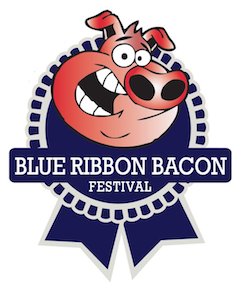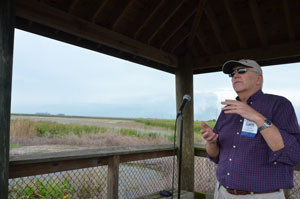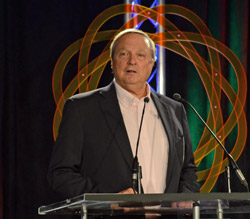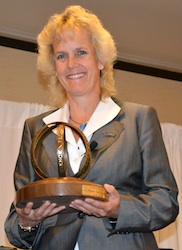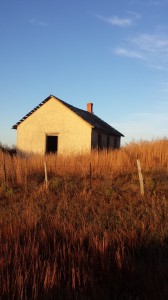2014 CTIC Conservation in Action Tour Photo Album
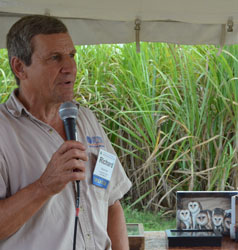 Barn owls are being used in the Everglades Agricultural Area as sustainable rodent control – and it’s working amazingly well!
Barn owls are being used in the Everglades Agricultural Area as sustainable rodent control – and it’s working amazingly well!
Richard Raid, a plant pathologist with the University of Florida, told us all about these hungry little raptors during what was arguably the most interesting stop on the 2014 CTIC Conservation in Action Tour of the Everglades Agricultural Area. Raid says the barn owl project started 10 years ago and has helped sugarcane growers drastically reduce their use of rodenticides. “One of the growers used to have about 4,000 acres of sugarcane and … used 8-10 tons of rodenticides a year and he said he had less rodent damage with the barn owls than he ever did with rodenticides,” he said.
Raid says baby barn owls, the size you can see at the end of the video and in the photos, swallow entire rats whole and eat 4-5 per night! They regurgitate the fur and bones and you can learn more about what they do with that in the video. It’s gross, but Raid says the kids they teach about barn owls love it! “With kids, cute it good, but gross is better!”


